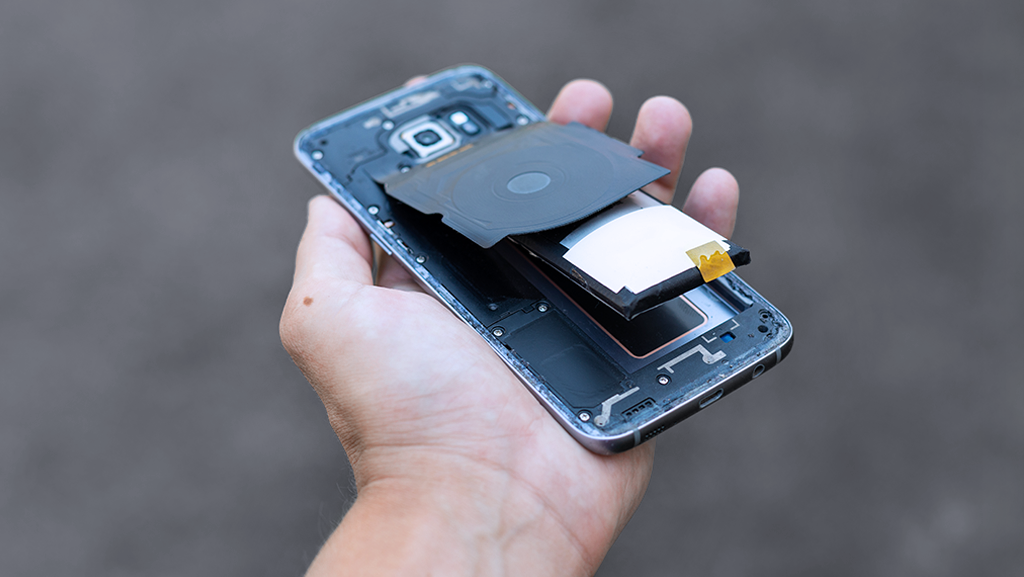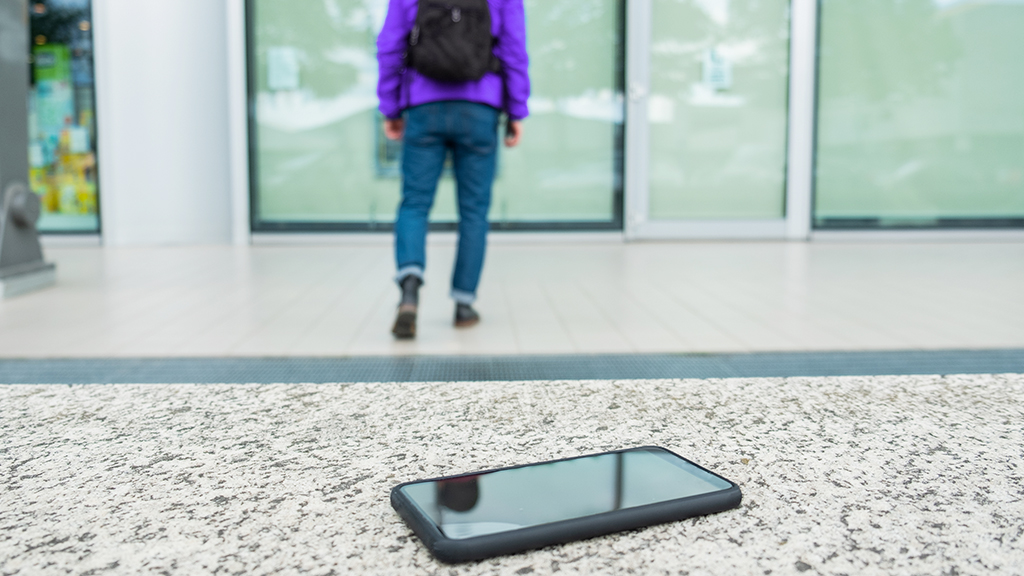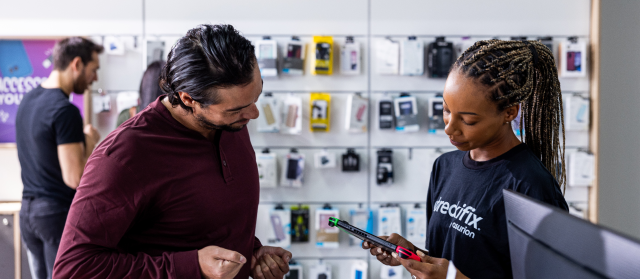Every day, we rely on lithium-ion batteries to power our tech, from smartphones to laptops. These batteries are incredible; they're able to power our devices for several hours with a single charge.
But they aren't perfect. If made or used improperly, they can swell over time. Not only is a swollen battery strange looking, it can also be dangerous.
At Asurion, our experts help millions of customers get the most out of their tech and resolve their device problems. Here's everything you need to know about a swollen battery and their advice on what to do if you have one.
Why do batteries swell in phones and laptops?
A number of factors could lead to a swollen battery in your iPhone®, Android™ or laptop, but a manufacturer's defect is the most likely cause. If there's a flaw in a lithium-ion battery, the charging process will create a small amount of gas in the battery's sealed chamber. Over time, that gas will build up and cause the battery to expand.
Other swollen battery causes:
- Overcharging
- Physical damage to your device
- Exposure to high temperatures
- Natural aging
How would I know if my device has a swollen battery?
As the battery expands, your device will slowly change shape. For example, your phone screen or case might begin to warp or your laptop keyboard could start protruding. You also may notice your device is wobbly when you lay it on a flat surface or that buttons become hard to push.
If your device is easy to open, you can take off the cover and check out the battery. If it looks puffy or rounded, that likely means it's swollen. If you're unsure, stop by and ask for help at the nearest uBreakiFix® by Asurion store.

Phone giving up early in the day?
A battery replacement can keep it lasting longer. Schedule a fast battery fix with our experts today.
Is a swollen battery dangerous?
Yes. A swollen lithium-ion battery can be extremely dangerous if left in your device. It could become punctured, causing hazardous gases to escape. A swollen cell phone battery could even catch fire or explode while you're holding it, leading to serious injury.
Can a swollen battery be fixed?
Once a battery becomes swollen, it no longer works properly and you should replace it. Do not try to put a swollen battery in the freezer—it won't help and could put your home at risk.
What to do with a swollen battery
Once you discover a swollen battery, you should immediately turn off your phone or laptop. Don't charge it or turn it back on. Even if it's still working, connecting it to power could be dangerous.
The safest option is to take your device to a tech repair pro. They have the tools to safely remove and replace your battery. If you decide to try to remove the battery on your own, there are important safety precautions you should take.
How to remove a swollen battery from your phone or laptop:
- Find a well-ventilated area and put on goggles and gloves to protect yourself.
- As you remove the battery, be very careful not to squeeze or puncture it, which could start a fire.
- Once the battery is out of your device, put it inside a container in a cool, dry area away from anything flammable until you find a place to properly dispose of it.
If you've tried these steps and still need a little help, we're right around the corner. Schedule a repair at the nearest uBreakiFix® by Asurion store and our certified experts can get your device back up and running as soon as the same day.
Where can I safely dispose of a swollen battery?
If the battery is not smoking and appears safe to move, you can take it to an authorized battery collection site or recycling center, which will safely dispose of it. To find your closest facility, visit Call2Recycle.org.
You should never put a swollen battery in your trash can or recycling bin. This is a fire hazard and could put you and your home at serious risk.
How to prevent a swollen battery
If you take good care of your device, your battery is unlikely to swell. Follow these tips to keep your battery running smoothly for a long time.
Tips to avoid a swollen battery:
- Avoid extreme temperatures. Heat and humidity can harm your battery, so don't leave your phone sitting in a hot car.
- Use the charger that came with your device. Other chargers may be cheaper, but they may damage your battery.
- Don't leave your phone or laptop plugged in. Lithium-ion batteries are designed to use their power and then be recharged. If constantly connected to power, the battery will degrade and its life will decrease.
- Replace the battery if you see an issue. If your battery experiences damage or if you notice it getting very hot or losing its charge quickly, get a new one. If left in your device, it could become swollen.




